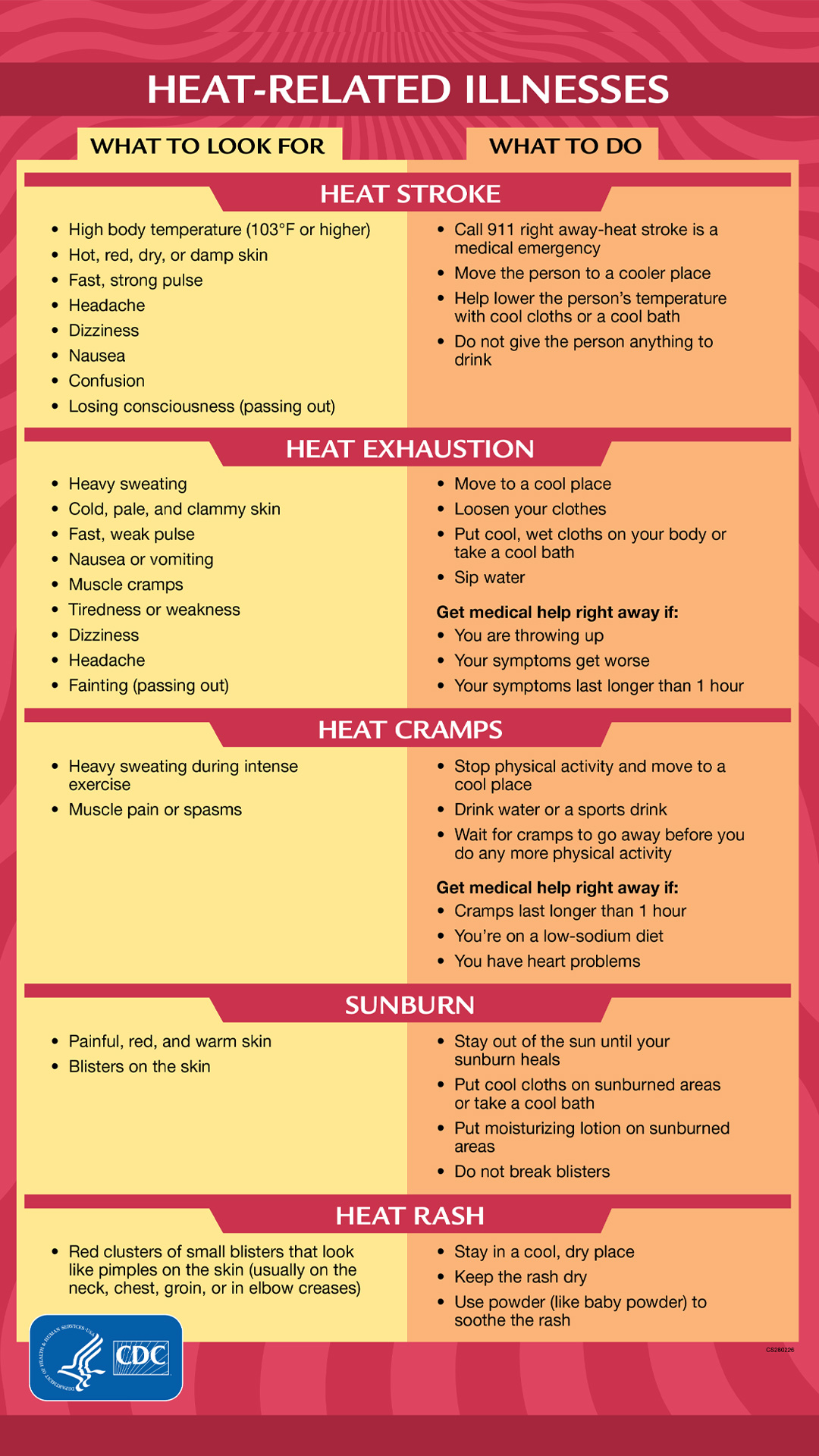When working in the heat, drink 1 cup (8 ounces) of water every 15–20 minutes. Drinking at shorter intervals is more effective than drinking large amounts infrequently.
Heat exhaustion or heat stroke can develop quickly over a few minutes, or gradually over several hours.
Pace Yourself: If you’re not accustomed to working or exercising in a hot environment, start slowly and pick up the pace gradually. If exertion in the heat makes your heart pound and leaves you gasping for breath, STOP all activity. Get into a cool area or into the shade, and rest, especially if you become lightheaded, confused, weak, or faint.
Wear Sunscreen: Sunburn affects your body’s ability to cool down and can make you dehydrated. If you must go outdoors, protect yourself from the sun by wearing a wide-brimmed hardhat, safety sunglasses, and by putting on sunscreen of SPF 15 or higher 30 minutes prior to going out. Continue to reapply every 2 hours.
Stay Away from very Sugary or Energy Drinks: These actually cause you to lose more body fluid. Also avoid very cold drinks, because they can cause stomach cramps. Practice sipping instead of chugging.
Replace Salt and Minerals: Heavy sweating removes salt and minerals from the body that need to be replaced. A sports drink can replace the salt and minerals you lose in sweat. Salt packets are also effective or even a small bag of plain chips.

If a person experiences any of these systems immediately take the appropriate action required. Cool the person by placing them in shade or an AC truck. Remove clothing, Ice or place cold drinks on the bare Groin, Arm pits, Chest and Forehead to rapidly cool the internal body temperature. Always call 911 first in an emergency!




